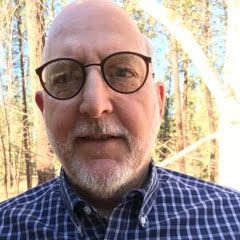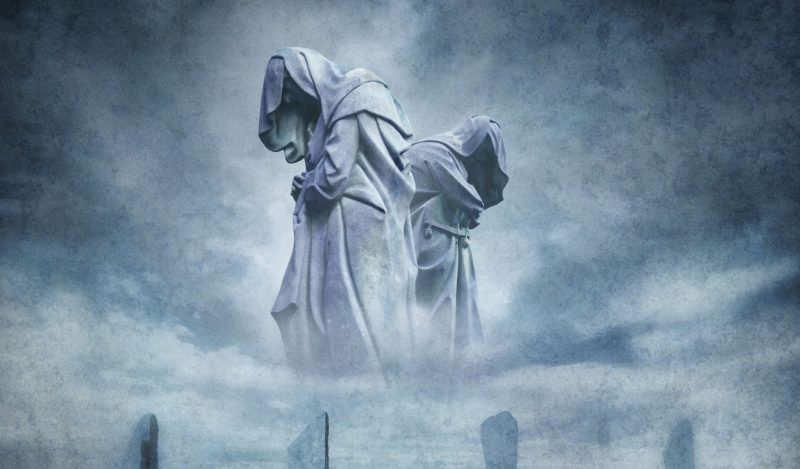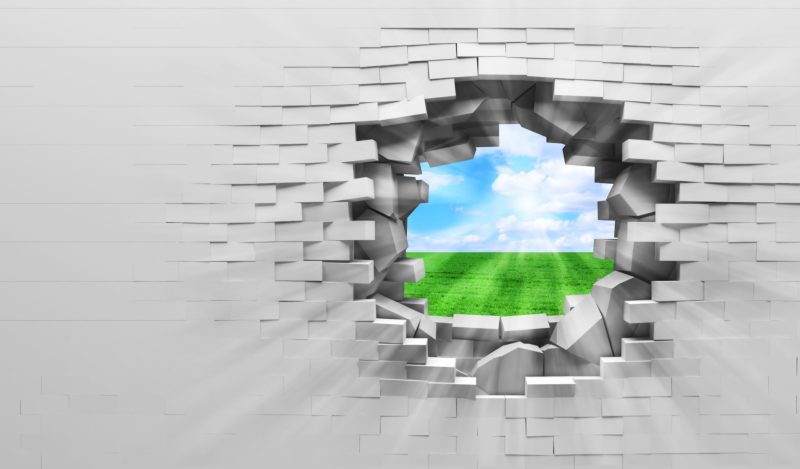My staff member came back to my office bearing an excited smile and a small wrapped package. “Merry Christmas. Open it.” I obliged and, after conquering the store packaging designed to keep everyone older than a 5-year-old from opening it, I found socks. Socks with a message. Printed on the upper portion of each sock is “Of course I talk to myself. Sometimes I need expert advice.”
What a great message.
No doubt, some are offended by that message. Perhaps those most offended frequently say “You think you’re always right.” It occurred to me when I heard that admonition some time ago that I do – I do think I’m always right. If I knew I was wrong and then acted in that wrong manner with full understanding, that would be the definition of a sociopath, perhaps even a psychopath. Since I view myself as not a psychopath, I think I’m right and try to act accordingly.
If I persist in my view of myself as not a psychopath, I also need to admit to actually being wrong, though I thought I was right at the time. Whoever doesn’t embrace his mistakes as a best opportunity for learning is both a fool and is likely self-deceptive. Survival on the planet offers daily opportunity for mistake-driven learning. Further, let’s admit that, especially on the job, part of being right is the ability and confidence to say “I don’t know. But I can find someone who might know.”
By the same token, anyone who understands he is wrong and persists, can be defined as a sociopath. For example, a public health employee who sees the destruction in the wake of COVID lockdowns, recognizes the destruction as such and continues to support policies restricting freedom could be described as a sociopath. Sociopathy should be a disqualifying condition for anyone looking at a public health position, and anyone in such a position should consider resigning – or be forced to resign – and then should be referred for psychological counseling.
If the message of my socks is in some way encouraging, just that might suggest people need help in thinking about or dealing with “experts” and expert advice. (Maybe people who read socks need more help in more varied ways than I am suggesting.) But, my novel socks suggest the ability to look to yourself for expert advice might be an uncommon thing.
The one who knows some real data could logically be called an expert. Unfortunately, we live in a time that is besieged by fake “experts.” Listen to the news when something unexpected happens. Part of the report will describe how “experts” predicted more or less of something than what actually happened. The Talking Head proclaims “more [or less] unemployment than expected by [unnamed] experts.” Or inflation… or whatever subject you pick. I assume those “experts” have some sort of certification procedure. Maybe I’m wrong on that.
Then there is the subset of “experts” who don’t actually have the information you’re looking for, but suggest they can prognosticate – predict or foretell the future. Prognosticating “experts” are called modelers. They feed limited information into their laptop computers and predict the future, subject to change when events along the way play out in ways that will negate their forecasts.
[Note to self: If I find myself able to predict the future with any degree of accuracy, use that ability on the stock market.]
Mankind would be well-served by predictive modeling reverting to the modeling of my era: using Testors glue to assemble a scale model of a B-52. That single change in world occupations would limit damage caused by this subset of prognosticating experts from worldwide injury and suffering to self-damage from getting too close to the glue vapors for too long.
The problem in our current world is that “experts” demand our behaviors conform to their self-proclaimed expert prognostications, for which they are never held responsible in any way. No costs to those predicting the future are associated with prognostication errors. All costs of future-telling errors are borne by not-prognosticators. Those costs are borne by the people, by society, by the economy, all too often by children, etc. The rest of us bear the costs.
Maybe that’s where we’ve lost it. Somehow government has been gifted by the populace with the ability to direct action based on “expert” thought process and future-telling with no oversight other than those proclaiming to have the expert thought process. Further, the populace has gifted itself with a surprising level of amnesia regarding the results of this so-called expert thought process.
Speaking of Santa, how did all that gifting of authority and blame-immunity occur? How did we as private, at least semi-rational people do that?
One of the attractions of government is that it is a personal guilt-assuaging surrogate for personal involvement with humanitarian enterprises: vote this way, the poor will be taken care of, and I have done a good, humanitarian thing – that sort of thought process. Voting one way becomes a decision based on superior morals versus the immoral decision of voting differently or even believing differently.
Still… soothing personal guilt doesn’t fully explain the demand that others follow your lead. Nowhere in the US Constitution does it say you must obey someone who proclaims he or she is an expert. To the contrary, the Ninth Amendment’s language suggests individual rights predate any government (or “expert”).
Somehow, in the process of gifting authority, those who would gift an authority to the government feel free (poor choice of wording) to demand the participation of others in that gifting – not only participation, but in obedience and, yes, allegiance. A great deal of religiosity is on full display. Actually, religiosity might be debatable since it’s obviously the morally superior choice, in this view. It is morally superior to vacate your thoughts in deference to the thoughts of those who have been proclaimed by unknowns to be experts.
And, with every “expert opinion” expressed, heads just bob up and down like that top hat-wearing toy glass bird that just keeps nodding while dipping its beak in a glass of water. The bobbing keeps up as long as there is water in the glass. Sort of like the belief keeps going so long as repetition of the disease-mantra continues. And no one ever asks, “Who are those guys?”
So, how do we break this cycle?
I’ll loan you my socks! Read them! Get in touch with your internal expert. Below is information I found early on in the COVID panic, prior to Brownstone becoming established. Since Brownstone, I have access to more things, but still not dramatically more scientific publications than regular folks have. I don’t have institutional access to any of this. However, loss of personal liberty does shift my anger-driven curiosity into overdrive.
So, it was easy to learn early in the epidemic that weeks of complete isolation in Antarctica can’t stop a virus from getting around; we’re playing with suicide fire by closing down the economy; the costs of lockdowns may far exceed the costs of the disease in life-years; anxiety during lockdown is going to kill people; imperfect vaccines may well make the consequences and the virus itself worse; and this certainly isn’t the first pandemic to hit us. Look up the Spanish flu, for goodness sake.
One of the things I learned from reading about the Spanish flu is that COVID would likely have been a non-event in 1918. Life expectancies on both sides of the 1918 epidemic were basically 50 to 55 years old. The Spanish flu took its toll on the young. It hit older folks, but there weren’t as many of them. COVID with its penchant for killing the elderly likely wouldn’t have been noticed while the Spanish flu was killing young, healthy people. Factor those words – killing young, healthy people – into your next moment-of-hysteria you hear about COVID being the worst epidemic ever. In years of life lost, COVID has a lot of competition.
In addition to being able to find applicable resources about viruses, pandemics, and lockdowns, I was reminded of immunology during all this when one of my staff asked me “Why don’t you ever get sick?” My response was simple: “I’ve had everything.” An assistant at the dental office I go to said the same thing when I told her the story. Classic grandma-immunology is apparently lost knowledge.
Searching out information on masks and viruses was inspired by my built-in distaste for wearing one, aided by the knowledge that isolation in Antarctica couldn’t stop a virus, plus an imagination. The imagination part was jump-started by the “expert” demand that elementary school children wear masks. Who’s the idiot who thought that one up?
My imagination went wild thinking how disgusting a mask from a grade-school kid would be at the end of the day. My racing imagination was rewarded when I had a teacher in my office who told me that kids were attempting to drink from the water fountain…through their masks. Later I found that CO2 rises in kids with mask-wearing as well as having fungi and bacterial colonies growing in their masks.
Then when I put together the research and story of how we may be irreparably damaging children by surrounding them with masked people, I was done with masks. My occupation demanded that I be cautious about proper virtue-signaling in the office, but it wasn’t long before books were written about how little value masks have. You’ll have to decide for yourself about whether leaving kids outside to silently eat lunch and not allowing them to take off their masks until their milks were open to limit exposure amounts to child abuse. Maybe by definition it can’t be child abuse since it was done by “experts.”
The point in this was not to take you on some personal odyssey. The point is to suggest you read your socks. OK. My socks. Certainly abandon nodding into the water glass when demanded by an “expert.” Instead, get your head up and look around.
Then ramp that look-around response up a notch and the next time you hear an “expert” suggest your freedoms need to be limited and your human interactions need to be limited, suggest that “expert” stuff a sock in it. Become your own expert. “Of course I talk to myself. Sometimes I need expert advice.”
I had hoped to finish this before Christmas, but obviously that didn’t happen, so I offer another seasonal song for your merriment, sung to the tune of Auld Lang Syne,
Should auld acquaintance be forgot
Like the things we knew before?
Or should old acquaintance be restored
And throw experts out the door?
Published under a Creative Commons Attribution 4.0 International License
For reprints, please set the canonical link back to the original Brownstone Institute Article and Author.









